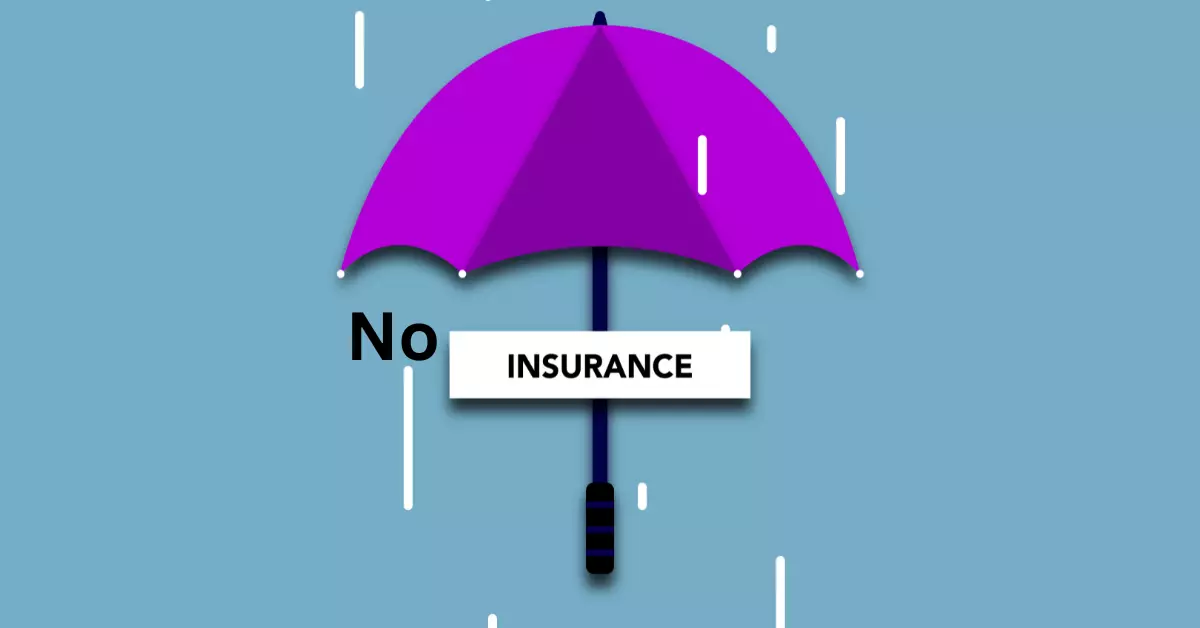Renters insurance typically does not cover tenant negligence. Renters insurance is an essential coverage for renters, as it offers protection against theft, fire, and other unforeseen circumstances.
However, it may not cover losses or damages caused by tenant negligence. In most cases, renters insurance policies do not extend coverage to negligent acts that result in damage to a rental unit or property. Tenant negligence could include leaving the stove on and causing a fire or failing to report a leak that leads to water damage.
Therefore, it is crucial to understand the terms and conditions of your renters insurance policy and if necessary, speak to your insurance provider to ensure you have adequate coverage. Additionally, it is always best to take extra precautions and be cautious to prevent accidents and damages within your rental unit.

Understanding Tenant Negligence And Renters Insurance Coverage
Define What Tenant Negligence Means In The Context Of Renters Insurance
Tenant negligence refers to the acts or omissions of a renter that result in harm or damage to their rental property, neighbors, visitors, or other individuals’ property.
In the context of renters insurance, tenant negligence commonly includes events such as forgetful accidents, incidents that occur due to inadequate precautions taken, and making mistakes in life.
For instance, a tenant leaving the stove on and causing a fire that results in significant property damage would be considered negligent behavior. However, the damage caused by regular wear and tear or normal usage is not considered negligence.
Highlight The Different Types Of Tenant Negligence That Renters Insurance May Or May Not Cover
Renters insurance policies typically cover a wide range of occurrences that may cause tenant negligence, but some events may be excluded from coverage. Here are some of the types of tenant negligence that may or may not be covered by renters insurance:
- Accidental damages: Rental insurance policies typically cover an array of accidental damages caused by a tenant’s negligence, often excluding intentional acts of damage.
- Bodily injury: If a guest or visitor gets injured due to a tenant’s negligence, renters insurance may cover medical expenses, legal fees, and settlements.
- Theft: Losses due to a tenant’s failure to safeguard personal property may or may not be covered, depending on the terms of the policy.
- Water damage: Flooding, leaks, and other water-related issues caused by a tenant’s negligence may or may not be covered by renters insurance. While natural disasters aren’t covered, malfunctioning appliances usually are.
- Exclusions: Renters insurance commonly excludes damages or losses due to criminal activities such as illegal drugs or owning unregistered, illegal weapons or intentional actions such as vandalism or arson.
To answer whether renters insurance covers tenant negligence, one must consider the terms of their policy and the circumstances of the situation.
Understanding the definition of tenant negligence and the types of negligence covered in a policy is essential for determining the level of protection provided by renters insurance.
When Renters Insurance Covers Tenant Negligence

Situations Where A Renters Insurance Policy Will Cover A Tenant’S Negligence
Renters insurance is a type of insurance that protects tenants from unforeseen events such as theft, fire, and other losses. But does renters insurance cover tenant negligence? The answer is, it depends on the situation. Here are some common situations where renters insurance will cover tenant negligence:
- If a tenant accidentally causes damage to the rental property, such as leaving the tap on and flooding the apartment, the renters insurance policy will cover the damages.
- If a tenant unintentionally injures someone, such as a visitor to the apartment, renters insurance can help cover the cost of medical bills or legal fees if the person decides to pursue legal action.
- If a tenant accidentally starts a fire in the apartment, renters insurance can cover the cost of the damages resulting from the fire.
Types Of Damages That Renters Insurance Protects Against In Cases Of Tenant Negligence
Renters insurance can be helpful in covering damages that result from tenant negligence. Here are some of the types of damages that renters insurance can protect against:
- Water damage: Tenant negligence such as accidentally leaving the tap on and causing water damage to the rental property can be covered by renters insurance.
- Fire damage: A renters insurance policy can cover damage resulting from tenant negligence, for example, starting a fire while cooking.
- Property damage: Renters insurance can help cover the cost of damages to the rental property caused by tenant negligence, including damaged walls or floors.
Examples Of How Renters Insurance Applies In Different Scenarios
Let’s look at some examples of how renters insurance applies in different scenarios:
- A tenant accidentally overflows the bathtub, causing water damage to the apartment. Renters insurance can help cover the cost of repairs or replacement of damaged items.
- A tenant leaves the stove on and starts a fire that results in damages to the apartment. Renters insurance will cover the cost of repairing or replacing the damaged items.
- A tenant’s dog bites a visitor to the apartment. Renters insurance can cover the cost of medical bills or legal fees if the person decides to pursue legal action against the tenant.
Renters insurance can be beneficial for tenants in cases of tenant negligence. As a tenant, it’s important to understand the situations in which renters insurance can help protect you from unforeseen events.
When Renters Insurance Does Not Cover Tenant Negligence

Does Renters Insurance Cover Tenant Negligence?
As a renter, you are responsible for maintaining the property you rent. However, accidents can happen in any situation, no matter how much care is taken.
That’s why renters insurance is crucial, as it provides financial protection in the event of accidents, damage, or theft.
Identify The Types Of Tenant Negligence That Renters Insurance Will Not Cover
While renters insurance covers a wide range of risks, it does not cover tenant negligence in all cases. Here are some examples of tenant negligence that renters insurance typically does not cover:
- Intentional damage: Renters insurance will not cover any intentional damage caused by tenants, such as vandalism or malicious destruction of property.
- Normal wear and tear: Normal wear and tear is expected in any rental property and is not covered by renters insurance.
- Pest infestations: Renters insurance will not cover any pest infestations that are caused by a tenant’s negligence, such as food left out, trash not disposed of properly, or not reporting pest problems in a timely manner.
- Mold growth: Renters insurance generally does not cover damage caused by mold growth resulting from a tenant’s negligence, such as failing to clean up water spills or not reporting water damage in a timely manner.
Explain The Impact Of Specific Policy Exclusions On A Tenant’S Coverage Limits
When renters insurance does not cover tenant negligence, it can significantly impact a tenant’s coverage limits.
For example, if a tenant deliberately damages the rental property, the landlord may file a claim with the tenant’s renters insurance policy. Still, the damage may not be covered under the policy, leaving the tenant liable for the repair costs.
Additionally, if mold growth is excluded from coverage, and a tenant negligently causes mold growth by not reporting a water leak, the tenant’s renters insurance will not cover the cost of removing the mold. That means the renter will be responsible for the cost of the removal, which can be expensive.
Use Examples To Illustrate When Renters Insurance Might Not Apply In Different Scenarios
Renters insurance may not apply to various scenarios. Here are some examples to illustrate when renters insurance might not apply:
- If a tenant’s dog bites someone, and the renters insurance policy excludes dog bites, the policy will not pay for any resulting legal fees or medical bills.
- Suppose a tenant’s negligence causes a fire that damages the rental property. If the policy’s exclusions specifically include fire damage resulting from tenant negligence, the policy will not cover the costs associated with the fire.
- Renters insurance may require a specific type of lock on exterior doors or windows. If a tenant fails to install the required locks and is burglarized, the policy may not cover any losses.
Renters insurance can be a lifesaver in many situations. However, it does not cover all scenarios, especially when the tenant is negligent. By understanding what renters insurance does and does not cover, tenants can better prepare for unexpected events and avoid potential financial losses.
Frequently Asked Questions Of Does Renters Insurance Cover Tenant Negligence?
Does Renters Insurance Cover Damage Caused By Tenant Negligence?
Yes, renters insurance can cover damage caused by accidental tenant negligence, such as a kitchen fire.
Can I Be Liable For Damages If I Don’T Have Renters Insurance?
Yes, if you cause damages and do not have renters insurance, you may be held liable for the cost of repairs or replacements.
Does Renters Insurance Cover Intentional Damage Caused By A Tenant?
No, renters insurance usually does not cover intentional damage caused by a tenant, such as vandalism or theft.
What Should I Do If I Caused Damage To My Rental Property?
If you caused damage, report it to your landlord immediately and file a claim with your renters insurance provider.
Conclusion
Renters insurance can provide coverage for damages caused by tenant neglect. However, the specific terms and limits of coverage will depend on the individual policy and the circumstances of the incident. It is important for tenants to read through their policy thoroughly and understand what is and isn’t covered, as well as any deductibles or limits to coverage.
Taking preventative measures to avoid incidents can also help reduce the risk of needing to file a claim and potentially facing higher premiums in the future. Additionally, landlords may require renters insurance as a condition of the lease, so it is important for tenants to have a clear understanding of their obligations as well.
Overall, renters insurance can provide peace of mind and protection for tenants in case of unexpected events, but it is important to fully understand the policy and take necessary precautions to prevent incidents.
Reference: https://getjerry.com/questions/does-renters-insurance-cover-negligence
